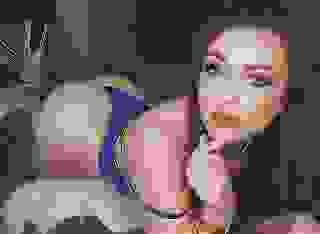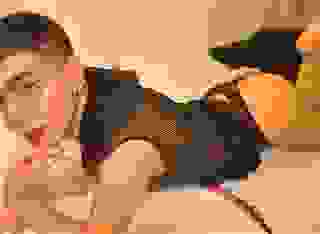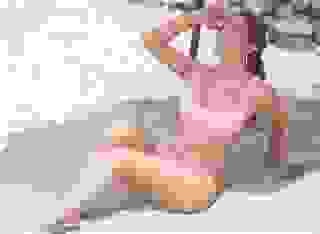- Transgender & Crossdressers
- Tribal Bonds Ch. 03
Note: You can change font size, font face, and turn on dark mode by clicking the "A" icon tab in the Story Info Box.
You can temporarily switch back to a Classic Literotica® experience during our ongoing public Beta testing. Please consider leaving feedback on issues you experience or suggest improvements.
Click hereHello Readers! This is Part Three of a Six-Part story. All six parts are written and will be posted in order. It takes place in the same universe as my "Sultanah" series, but you don't need to read any of that to understand this story (but you really should read it). In Part 1, Kedi was sold into slavery along with a member of a rival tribe, Cilek, but the slavers were seemingly attacked by ghosts. In Part 2, Kedi wakes up surrounded by warrior women who may be ghosts, but are certainly kinky. Please, please, please let me know what you think!
Chapter 3: Clash of Civilizations
I was blinded by light. That was the first thing that I remember. Suddenly, I was bathed in the stuff
But it was too much. I instantly groaned and laid my forearm across my face, covering my eyes. My senses had returned to me, in a flood, all at once and my mind reeled. It took a moment, to get my thoughts back in order. But only a moment. After the initial shock of the light in my eyes subsided, I remembered exactly where I had been, and what I had been doing, when my senses left me.
The longhouse. The ghosts.
For a terrifying second, I realized the source of the bright line. I had been cast into the flames! When the ghosts had finished their ritual, they had dragged my body to the fire, or another fire outside, and were burning me alive! And that had awakened me. I jerked fiercely, my arm slipping from my eyes. I felt my wrist bump my nose, sensed the pain. And then I realized that otherwise, my body did not hurt. No searing agony from flames. I was warm. But pleasantly warm.
"Ah, you're awake," a familiar voice said. At first I couldn't place it. I sat up (realizing for the first time that I was laying down) and squinted in the light, which was still overwhelming. Forms began to reappear around me and I learned the source of the light was the Sun. Just where the Old Ones, who came before Buzcu, had hung it in the firmament to light their way North.
As my eyes adjusted to the light, I became aware of my surroundings. I was no longer inside of the longhouse. If I had ever been. Perhaps that had been some sort of dream. Or a vision. But it felt so real...
I was in a village, that was clear. And a small one. I could see a small, open, circular area right in front of me. It was maybe 30 yards in diameter, perhaps a little more. Stretching out, like spokes from the hub of a wheel, from that open area were a series of long houses. There were at least a dozen of them, including one that I could sense behind me as I sat up. They were tall structures and I could see hardly see above them. But, in the little alleyways between the longhouses, I could see a bit into the distance. There was a palisade wall that formed a circle around the longhouse. It looked like there was a few long yards between the back of each longhouse and the wall. I could not see a gate and presumed it was behind me. Beyond the palisade wall, I could see large evergreen trees rising high and higher as they moved from the village. Further off, I could see the peaks of snow-topped mountains peaking over the tops of the trees.
But I was not overly concerned about geography. Because it became quickly clear that the village, while small, was bustling with life. I could hear it before I could see it. The sounds of goats. Of chickens. Creaking carts. And the sound of voices. Women's voices. Children's voices. The forms that produced these voices came into focus. There were children playing some sort of game in the town circle. Many of them. They appeared plump, healthy, and carefree.
There were women leaning against the front of the longhouses, watching the children play. Some cheered on their daughters (for they were all girls as well), and other spoke amiably with the women next to them. Down the alleyways, I could see other women tending to goats and chickens, slaughtering animals, eating at small tables, and casually practicing with weaponry. All the villagers were wearing loose-flowing gowns of white, cinched at the waist with a black leather belt. Those white sheets were the only thing remotely ghoulish.
"There is water on the table to your right. You must be thirsty," the familiar voice said again and remembered that someone had spoken to me before. I turned first to my right, finding the water and drinking it rapidly. I had not realized I was thirsty until that very moment. The water tasted almost unbearably sweet as it soothed my dry throat. There was a crust of bread next to the water and I picked this up as well. Sating my thirst had exposed my intense hunger. I bit the bread and then finally, turned to the source of the voice.
"We were beginning to fear you'd never wake up. I thought the sun would be solicitous. For once, I was correct. Please eat and drink, regain your strength," the woman said as I looked at her, "My name is..."
"Orospu," I said quickly, my eyes bulging. Any illusion I had that my experience in the longhouse was a dream melted. My pulse quickened. But Orospu laughed, a gentle trilling sound.
"I thought I saw your eyes flickering last night," Orospu said, "The others said you were dead to the world. Once again, I am correct. I am in fine form this morning." The situation was baffling. It felt as though I were awake, but in a dream. And, I was having a casual conversation with a mysterious woman who, like me, possessed a cock. And everything was calm. And pleasant. I shook my head.
A chilly breeze blew through the center of the village, whipping up the hair and gowns of the women and girls. I was cold and pulled my knees up to my chest, noticing that, I too was wearing a white gown. I too had become a ghost.
"The Hayalet are all dead. They are ghosts who haunt the valley that bears their name," I said without preamble. My tribesmen in the Buz had said that, even for a Northerner, I was blunt. I saw no need to dissemble. I stated the facts as I knew them to Orospu. She laughed lightly and opened her hands.
"Our reputation still precedes us. And the raid on your caravan should help as well," she stated simply.
"It wasn't my caravan," I said.
"Yes, I gathered from what the warriors tell me that you were a prisoner. A slave," Orospu said. She spoke of things in the past.
"I was a prisoner," I said, "Am I a prisoner no longer?" Orospu shook her head.
"The Hayalet have never taken a prisoner. Ever. You are either dead. Or left to tell the tale."
"I am not dead," I said, though I was far from certain. Orospu shrugged, "So I may leave?" Orospu's brow furrowed.
"You are not well-enough to travel," Orospu said. She reached forward, her palm moving towards my head. I flinched away from her touch. But she did not desist. I felt the palm of her hand, soft and warm, against my brow. "No longer feverish. But you are still recovering." I waited for more, but she seemed to believe that that had exhausted the conversation.
"But when I am better?" I said as my excitement started to rise, "I am from the far North. I am Buz. I need to return to my tribe and..." I began, my words tumbling over one another as they raced from my mouth. My mind's eye cast me into the air, like a bird I saw the Hayalet valley, where I had been attacked. I turned towards the North and flew in the direction. The miles I'd crossed slowly, in captivity, disappearing behind me at a faster and faster rate. If I left the next day, if I got back to the Hayalet valley and walked out, I could be there in a few weeks. In the far North. With the Buz. To avenge myself and take my place where I belonged.
"How do I get back to the river valley?" I asked, "where am I?" I said, casting my eyes around. This time, I paid greater attention to the mountains and trees around me. I searched for anything even remotely familiar. But I had been in the Valley so briefly, I might not have recognized anything even if I was just a few miles from the river. And, in reality, I had no idea how far I'd been taken from the scene of the raid. I could have been 100 miles away.
"Tell me how to get back," I said, looking back at Orospu.
"It is not that simple," she said. Her tone was warm, but had a hint of finality to it. She must've seen my brow furrow, sense my confusion, "We are ghosts here, as you yourself stated. But ghosts do not sleep. They don't eat. They don't rest. They don't have children. We can do those things, here. But if anyone were ever to discover this place, if they learned the truth, then we wouldn't be ghosts anymore. And raids on caravans in the night would no longer be enough to keep up safe. You were blindfolded when you were brought to this place, even though you were not conscious. You will be blindfolded if you leave."
"What is the truth? What is this place?" I asked. Thoughts of freedom and returning to the Buz had temporarily blotted out my curiosity. But Orospu's cryptic statement, including the ominous 'if' had rekindled my interest.
"This? This is the village of Daire. The chief village in the hanging valley of Ust, the largest province of the Hayalet," Orospu said calmly. I felt a chill run down my spine.
"The Hayalet?" I asked, "They are all dead. Their villages destroyed, their provinces overrun. The Ulus have killed them to the last man." I quickly recalled the details of the story that Topu had told in the river valley. Betrayal by the Ulus, weakness by the Hayalet.
"To the last man is right," Orospu said with a small chuckle.
"So if you aren't the Hayalet, who are you?" I asked, imagining that Orospu's statement had confirmed my conclusion.
"We are the Hayalet," Orospu said, indicating with a hand to the women and girls around her.
"But you said..."
"To the last man," Orospu repeated. She paused a moment, again sensing my confusion, "You have heard some of our story. But you haven't heard it all. Don't be ashamed. Few have. And that is by design."
"I don't understand how, if the Ulus killed every Hayalet man, you can be the Hayalet here. Now. If you aren't ghosts." I said. Orospu nodded slowly.
"You already know more than most, just standing in this village. Too much knowledge, really. The danger is already present, more knowledge will not make you anymore of a threat to the Hayalet. Further, you are here as a guest, not a prisoner. And, as a guest, you are owed an explanation." I had trouble following what Orospu was talking about. It seemed that she was speaking to herself, rather than to me. I remained silent, and she continued speaking.
"You know that our erstwhile allies, the Ulus, took advantage of our hospitality and, one night, began a slaughter. We were weak, the Hayalet own our weakness now. But we trusted our allies. We trusted the peace that the Empire had brought us through the years. We were totally unprepared for the sacking of our chief city.
"Our enemies had prepared for months, perhaps years, for their treachery. They had considered a thousand contingencies, prepared for every eventuality. They rapidly killed our generals, our statesmen, our leaders. They lopped off our heads first, making resistance impossible. Even if we had not been completely shocked by the Ulus' actions, there would have been no one left to organize our forces." I listened to Orospu speak, still sounding bitter about actions that had occurred hundreds of years before she was born. But, while I could understand her bitterness, I was also filled with admiration. For the Ulus. For their viciousness and relentlessness. The Buz could learn from them.
"They didn't just sack the city," Orospu continued, "They searched, street by street, for every man or boy they could find. Without mercy, without pause, they slit the throats of old men and babies. Children were torn from their mothers breasts and killed for the crime of being a Hayalet man. They left no stone unturned. They found hiding places and secret nooks. Found men there. They killed them all. And, when they were done, they spread out into the countryside. To every hamlet and isolated farm in the Hayalet valley. They moved on horseback, arriving before the news of their betrayal. They killed men and boys and tossed their bodies into the river, which ran red as it exited the valley.
"They were ruthlessly efficient. They missed no one. If a man ran before them, they would spend hours hunting him down and would not stop until they were certain the man was dead. They sealed off the ends of the valley. They made sure than no one left. As far as I know, no man survived the months-long blood orgy. If a man did, he did so by shuffling off his Hayalet exterior and faking that he had Ulus blood. Finally, the Ulus had been left in control of the valley. We have always simply called it The Massacre," Orospu's eyes had grown misty as she spoke, the pain in her voice sounding clear, present.
"That is the story that I heard," I said, once again being blunt. Perhaps too blunt. Orospu snorted.
"Even women sometimes fall into the myth that only men matter," Orospu said, and she looked at me as she spoke. I did not understand her meaning, but she kept speaking, "The Ulus felt that way. They chased down and slaughtered our men, our boys. They believed that the Hayalet were born from the seed of their fathers. Eliminate the fathers, eliminate the seed, eliminate the Hayalet.
"Certainly," I interjected, "A child is born of his father's seed." I was still confused by Orospu, it seemed she spoke in riddles.
"The blood of the Hayalet runs through a woman's veins as well," Orospu retorted, "But the Ulus thought as you did. As they marched through the valley, murdering men and boys, they largely ignored the women and girls. Pretty ones they tried to capture. As slaves and wives. But they were eliminating the Hayalet, or so they thought, they didn't have time for women. Many slipped through their fingers.
"In fact, the Ulus were so single mindedly driven to kill even gray-bearded men and beardless boys, they even allowed some of our leaders to escape. The leaders who were women." I was taken aback by this. Women leaders? The Buz could barely stand to listen to me speak, let alone lead. It sounded wrong. But also, alluring. After all, would it not have been a welcome change to have my voice heard.? Perhaps when my tribe was deciding who was to be a slave?
"Most Hayalet children, like most children everywhere, were born either with a cock or a cunny," Orospu said, and it felt like she was changing subjects, "Babies with cocks become men, babies with cunnies become women. And it is as simple as that." I knew from my own experience that it was not always as simple as that.
"But, since time immemorial, there have been others born among the Hayalet. Breast, cunnies, and soft, curved bodies like a woman. But cocks like men," Orospu said, raising her eyebrows at me. I felt a jolt, "The Hayalet recognize these people for what they our - a fusion of the male and female. A divine expression of the duality of nature. Light and Dark. Hot and Cold. Man and Woman. Goddesses who walk on Earth." Orospu's words seemed to be hammering into me. I had never heard my body described in such a way. As a thing of...honor. It was a strange, and shameful body. Wasn't it?
"These people are called the Cadilar and, because of their closeness to the Gods, they performed the rituals. They served as priestesses and conduits to our ancestors, who live now in the bottom of the river. The Cadilar were honored, respected, and consulted in all matters. From war to crops.
"There were never many Cadilar. No one could predict when or to whom one would be born. But a Cadilar was taken from her family at birth, raised among other Cadilar to know the rituals, to read the signs left for us by our ancestors on the surface of the river, and to learn the history of the Hayalet. Cadilar made vows of temperance, fortitude, and chastity.
"When the Ulus attacked, they had been our neighbors long enough to know that the Cadilar existed. But they believed that the Cadilar were "merely" priestesses. Women, like all other women. Some were killed, some were enslaved. But most were simply allowed to slip away from the cities, from the village, from the farms.
"The women of Hayalet had never before been in charge of their own destiny. Hayalet men, like men everywhere, were jealous of their monopoly on power. It would have been easy for the remaining women to scatter, to travel to other civilizations. To be enslaved.
"But the Cadilar remained. And the women of Hayalet had always followed the Cadilar in spiritual matters. Now, facing the death of their husbands, sons, and fathers, they were willing to follow the Cadilar out of the Valley of Death.
"The Cadilar often went to the mountains to perform rituals and commune with the Gods. They knew of the fertile hemmed-in valleys, the hidden places, the caves and streams. The Hayalet women who survived the Ulus attack followed the Cadilar to these places. They found sheltered plains, like this one, and they hid from the rampaging armies of the Ulus. Waited for their enemies to leave.
"But the magnitude of what had occurred was quickly apparent. The Ulus remained in the Hayalet Valley. No men staggered into the mountains. There were simply no men left. The enemy would not leave. And there was no future for the Hayalet. No seed to grow new crops.
"The women of Hayalet quickly realized that there were no longer any men to lead them. If the Hayalet were to continue as a people, the women (and the Cadilar) would have to take on the mantle of leadership. Necessity and danger are excellent teachers. Women who, just a few weeks before, would have meekly asked their husband or father before taking even the simplest action, suddenly burst forth in full masterful vigor. They gauntlet had been thrown at their feet and they did not hesitate to lift it. If their men had known the deep well of resourcefulness and power that lay within their wives and daughters, and had the wherewithal to take advantage of it, they might never have been defeated in the first place.
"The Cadilar stood aside at this time. They had organized the shattered remnants of Hayalet and led them to safety. And they continued to demonstrate their value as spiritual guardians. But they did not step into the shoes of the men of Hayalet. They had no desire to do so, nor did the women need them.
"In fact, the women of Hayalet were more than capable of making decisions on their own. Angered by the Ulus treachery and spurred to action by their sudden freedom, the Hayalet women reorganized their civilization. Here. What would eventually become a village. The call went out among the mountains and the caves, and the women met here, brimming righteous anger and ideas for how to respond. And to plot a path into the unknown, without men.
"Every surviving adult women in Hayalet was present. The Cadilar came to provide guidance and to chronicle the events. In the full flush of freedom, passions were high and ideals clashed. Some of the women counseled caution. They suggested climbing into the highest reaches of the mountains. Hiding forever. Other women counseled against this. They knew that the Ulus thirst for land and power would not end. Like the Hayalet, they would eventually learn about these sheltered valleys and streams hung in the mountains above the Valley. They would come. They would captured or kill the women. Hiding would delay, but not end, the threat.
"These bolder women suggested striking back. They recognized that the Ulus would never suspect an attack. They believed that, upon killing all of the men, the threat of the Hayalet was forever ended. They would be sloppy, unguarded. They suggested night attacks on the Ulus. Killing Ulus in their sleep, the same way the men of Hayalet had been slaughtered.
"Other women suggested that, once the Ulus learned they were under attack, they would realize that some Hayalet had survived. They would hunt them down. Kill them. Attacking was, in their view, just as dangerous as hiding.








